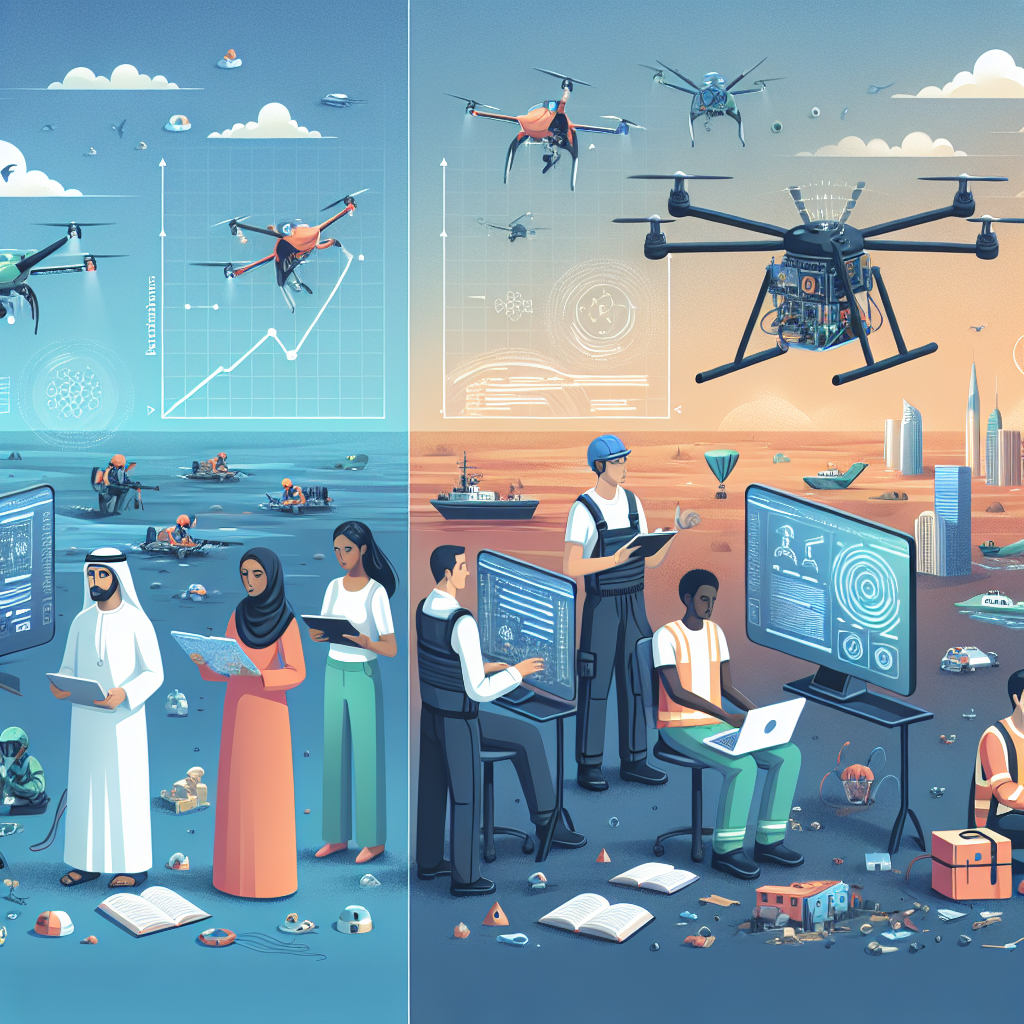In recent years, the use of artificial intelligence (AI) in disaster recovery efforts has become increasingly common. From predicting natural disasters to coordinating relief efforts, AI has the potential to significantly improve the effectiveness and efficiency of disaster response. However, as with any technology, there are ethical considerations that must be taken into account when using AI in disaster recovery.
One of the key ethical concerns with AI in disaster recovery is ensuring fairness and equity in the distribution of resources and assistance. AI systems are only as effective as the data they are trained on, and if that data is biased or incomplete, it can lead to unfair outcomes for certain groups of people. For example, if an AI system is trained on historical data that is biased against marginalized communities, it may disproportionately allocate resources to wealthier or more privileged groups during a disaster.
To address these concerns, it is important to develop AI systems that are transparent, accountable, and fair. This can be achieved through a variety of methods, including:
1. Diverse and representative data: Ensuring that the data used to train AI systems is diverse and representative of the population is crucial to avoiding bias. This may involve collecting data from a wide range of sources and ensuring that it adequately represents all groups of people who may be affected by a disaster.
2. Fairness assessments: Conducting regular assessments of AI systems to evaluate their fairness and equity is essential to ensuring that they are not inadvertently discriminating against certain groups. This may involve using fairness metrics to measure the impact of the AI system on different demographic groups and making adjustments as needed.
3. Human oversight: While AI systems can be incredibly powerful tools for disaster recovery, they should never be used as a substitute for human judgment and empathy. Human oversight is essential to ensure that AI systems are making ethical decisions and are not causing harm to vulnerable populations.
4. Ethical guidelines: Developing and adhering to ethical guidelines for the use of AI in disaster recovery can help ensure that these technologies are being used in a responsible and transparent manner. This may involve creating policies around data collection, transparency, accountability, and fairness.
5. Community engagement: Engaging with affected communities throughout the development and implementation of AI systems can help ensure that their needs and concerns are being taken into account. This may involve conducting community consultations, involving community members in decision-making processes, and soliciting feedback on the use of AI in disaster recovery efforts.
By incorporating these principles into the development and implementation of AI systems for disaster recovery, we can help ensure that these technologies are being used ethically and responsibly. In doing so, we can harness the power of AI to improve the effectiveness and efficiency of disaster response efforts while upholding principles of fairness and equity.
FAQs:
Q: How can AI help in disaster recovery efforts?
A: AI can help in disaster recovery efforts by predicting natural disasters, coordinating relief efforts, identifying areas in need of assistance, and optimizing resource allocation.
Q: What are some ethical considerations when using AI in disaster recovery?
A: Some ethical considerations when using AI in disaster recovery include ensuring fairness and equity in the distribution of resources, avoiding bias in the data used to train AI systems, maintaining transparency and accountability, and incorporating human oversight.
Q: How can we ensure that AI systems for disaster recovery are fair and equitable?
A: We can ensure that AI systems for disaster recovery are fair and equitable by using diverse and representative data, conducting fairness assessments, incorporating human oversight, developing ethical guidelines, and engaging with affected communities.
Q: What role do ethical guidelines play in the use of AI in disaster recovery?
A: Ethical guidelines play a crucial role in the use of AI in disaster recovery by providing a framework for responsible and transparent use of these technologies. These guidelines help ensure that AI systems are being used in an ethical manner and are not causing harm to vulnerable populations.
In conclusion, the use of AI in disaster recovery has the potential to greatly improve the effectiveness and efficiency of disaster response efforts. However, it is essential to consider ethical considerations such as fairness and equity when developing and implementing these technologies. By incorporating principles of transparency, accountability, fairness, and community engagement into the use of AI in disaster recovery, we can ensure that these technologies are being used in a responsible and ethical manner.

